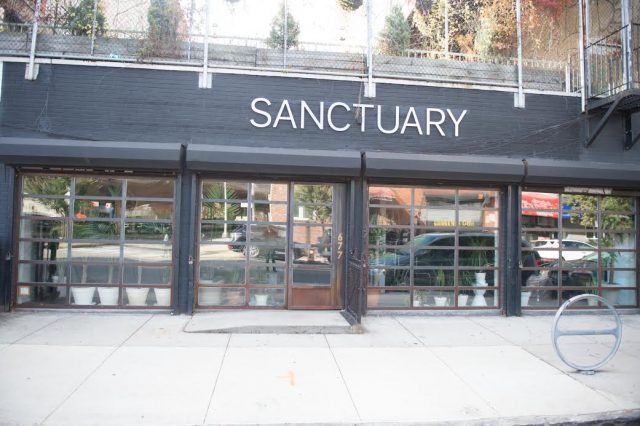
Susan Shapiro is one of the lucky ones, a person who actually makes money writing what she loves. We’re sure she’d dispute the “lucky” part, because making money freelancing takes hard, focused work. Along with publishing 8 books (most recently “The Bosnia List” Penguin 2014) Shapiro also teaches at The New School, NYU and in private classes and seminars to pay her bills. She originally shared her advice on how to actually make money as a freelance writer on Facebook, and she knows that if anyone needs the advice, it’s Brokelyn readers. So she was happy to share her keys to freelance success with us, and with you. – DC
1. WHO TOLD YOU FREELANCING WAS EASY?
Every day I read complaints that an editor didn’t respond, didn’t pay, changed words or rates or contract last minute. Welcome to freelance writing – the hardest field in the world. It sucks in many ways, always has. You will rarely get paid and printed on time and respected. You didn’t invent this pain and confusion. Expect it. Stop being shocked so you can protect yourself and go about the business like a pro. Or get into an easier, more stable field.
2. GET EDUCATED
I have a BA in English, an MFA, years more of classes and it still took decades to make a living. If you don’t have any degree in literature, writing or journalism, take classes or seminars – available in every state, country and online. I can recommend 30 great writing teachers. If you don’t study your field, you are at a serious disadvantage and may never catch up. If someone tells me they’re broke, I point them to 8 free videos on my website with great editors and agents, and my writing book costs $12. If someone doesn’t have $12 and sends me a nice email, I’ll get them the online version for free.
3. GET PROFESSIONAL
I worked for 2 years at a book publisher, 4 years at The New Yorker and had stints at Jewish Week, The NY Post and Newsday before freelancing. If you’ve had zero professional experience and aren’t taking serious classes now, than hire a ghost editor to help you with your pitches, essays, articles and book pages. Sometimes you have to spend $ to make $ and I can recommend some great ones very reasonably priced that will save you lots of rejections and humiliation.
4. FACEBOOK ISN’T RESEARCH
Posting “Anyone know a WSJ editor who’ll buy my piece?” is a pretty lazy way to go about your work life. Maybe someone will cough up the right name. But I teach my 18 year undergrads to get editors’ names from mastheads, websites, Googling and/or phoning the publication to ask. Not to mention going to panels, seminars and book events held at just about every college, literary festival and bookstore in the country. It’s an important skill to learn in every business.
5. YOU WON’T MAKE A LIVING FREELANCE WRITING
Most writers don’t. Many famous scribes I know also teach, edit, go on the lecture circuit, pay their bills with awards money, fellowships, rely on their spouse’s income or family money. I personally teach 2 nights a week, so does my husband (who has written for SNL, Seinfeld, In Living Color and Law & Order.) My former student Marci Alboher wrote a book called “One Person/Multiple Careers” saying it’s the wave of the future. If there’s anything else you can do to pay bills, do it. It will take the pressure off your writing and make your whole life easier.
6. THE INDUSTRY IS SHRINKING
There are fewer newspapers, magazines and webzines that pay every day. So make sure you are buying the newspapers and magazines you want to be paid from (and not reading articles for free online.) Also check out books and TV writing – two areas where there is money to be made.
7. DON’T WRITE IN A VACUUM
Every day people describe 3000- 20,000 word essays (that don’t sound timely, dramatic or artistic) that they want to be paid good money for, not paying attention to the market. Few publications I know pay for long essays from unknown writers. In my experience, the average length of a piece a new writer can sell is 900 words. Why don’t you know this before you waste months trying to sell something that might be unsellable? Read publications you want to write for and count word lengths. Don’t assume you can write the same length and on the same topics as Elizabeth Gilbert. Look up writer’s guidelines.
8. GET A TOUGH WRITING GROUP, GURU, TEACHER, MENTOR or SHRINK
I had many older more seasoned teachers, writers, editors and shrinks who helped me along the way. (Many I’ve written about.) I met most of them taking writing classes and in low-level publishing jobs (SEE #1, 2, 3). Facebook can be fun and helpful, but blind posts will never take the place of real teaching, mentorships and therapy. In every class I’ve taught in 21 years, I have students who break into the New York Times, WSJ, Slate, Salon and other top publications. In the last decades 80 of my students have sold books, with advances from $5000 to $500,000. But many learned how to do it during their 4-year undergraduate studies, 2-year writing programs or 15 week adult education classes. Without an anchor, it’s extremely tough out there. Being naïve or clueless will not help you. Arm yourself with knowledge, a team, and a realistic view. Once you do that, everything is possible and (on good days) it will feel like the most exciting profession in the world.
Susan Shapiro is a New York writing prof who teaches the “instant gratification takes too long” method, the author of 8 books and coauthor of “The Bosnia List (Penguin, 2014). You can visit her website www.susanshapiro.net or follow her on Twitter at @Susanshapironet
2 Comments
Leave a Reply




This is shit
Hello Susan, glad to read your article. on ways to succeed at freelance writing. As highlighted in your article , knowledge is power. I am an entrepreneur and wish to include freelance writing as another stream of income.
Please, kindly support me by sending a copy of your eBook on the subject.
Thanks for your support
Kehinde